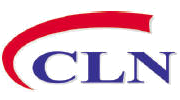Think Riches and Grow Sick
- Details
- Created: Monday, 03 August 2009 17:24
- Written by Tom Lipp
What is at the root of our current global economic crisis?
Think mental diet. What is the worst kind of food to eat? Hint…it looks and tastes good but leaves us sick. I'm sure we can all think of examples. Food for the mind is just as important as food for the body. So what is the worst kind of book to read? It's just the same… looks and tastes good but leaves us sick. That's how I see one of the best-sellers in the 20th Century, Napoleon Hill's Think and Grow Rich. This seminal work was first published in 1937 and has sold over 15 million copies thereby infecting multi-millions with its moneymaking secrets. What's wrong you ask? Why do I dislike it so much? I too was infected.
My mind told me the basic principles espoused by the books were good, but my spirit told me there was something seriously wrong with them.
I first came across Hill's book in my early twenties while in the business program at York University in Toronto. It looked great to me as Hill revealed the power of the human mind to attain riches in 13 well explained steps. It was filled with illustrations of great achievers such as Thomas A. Edison and Henry Ford. Hill's self-help to riches book is similar to another prosperity classic written about ten years earlier by G. S. Clason, The Richest Man in Babylon. My mind told me the basic principles espoused by the books were good, but my spirit told me there was something seriously wrong with them. I was too busy then to identify the problem but a strange uneasiness came upon me when I read them.
In a similar vein we have more recent examples of self-help get rich books in David Chilton's The Wealthy Barber (Canada's all time best seller, next to the Bible) published in 1989 and Robert T. Kiyosaki's Rich Dad Poor Dad (1997). There are many more of these self-help books including Steven Covey's classic The 7 Habits of Highly Effective People. The most recent in this line is Findependence Day by Jonathan Cheavreau, the Personal Financial Columnist for the Financial Post and one of my favorite writers on the topic.
Now don't get me wrong, I'm all in favour of well-organized principle-based instruction on how to generate and manage wealth. Am I against thinking? Of course not! Thinking is a good thing. It's much better than the "I'll win the lottery" strategy for success. But if we want to think and grow rich let's think properly.
Here's the problem. All this literature is based on the “no-God” worldview rather than the “know-God” worldview. These popular, widely loved pieces of literature talk about financial principles but they leave out the "prince" who should be driving the principle. When we remove the "prince" from the principle, all we are left with is an "iple".
Thinking is a good thing. It's much better than the "I'll win the lottery" strategy for success. But if we want to think and grow rich let's think properly.
These books ignore God. They have spiritual and metaphysical undercurrents but they attempt to dethrone God himself. Let me put it another way. Those of us who hold to the know-God world view want to see his kingdom on earth as it is in heaven. However, when the personal God is taken out of the picture and replaced with "self" or "wealth" it's like removing the "king" from the kingdom.
The way I see it a kingdom is a jurisdiction where the king has dominion. As kids of the kingdom it is absolutely essential to submit to the king's rule. We must be wary of literature that has some good counsel but rejects the King. If not, we become rebels. We may be well organized, intelligent, eloquent, and even rich, but we are still rebels.
In Chilton's The Wealthy Barber readers are urged to pay themselves first. Yet in the Bible readers are told to give the first part of their wealth to God.
A candy coated poison pill is dangerous, perhaps deadly. Look at what Napoleon Hill wrote about death," ...nothing comes after death except a long, eternal peaceful sleep and sleep is nothing to be feared." Oh really? Jesus Christ said something totally different. He described a rich man experiencing excruciating torment such that even a droplet of water on the tip of his tongue was craved yet forbidden (Luke 16:23-25). Jesus said that the rich man had no idea that an after death place of torment even existed. Maybe he read or inspired Hill's book, Think and Grow Rich. Too bad if he did! Unfortunately countless people have been infected with the poison of godless money strategies.However, when the personal God is taken out of the picture and replaced with "self" or "wealth" it's like removing the "king" from the kingdom.
As for the Richest Man in Babylon, Clason ends his book with the sentence, "The eons of time have crumbled to dust the proud wall of its temples, but the wisdom of Babylon endures." As for me I prefer the wisdom of Jerusalem espoused by King Solomon, the richest man alive, in his book the Proverbs of the Bible. Solomon warned against the pursuit of wealth for the sake of wealth.
I speak allegorically of course, but I would rather be the poorest man in Jerusalem than the richest man in Babylon. Their destinies are as different as heaven and hell. Of course if neither heaven nor hell exist, implying that Napoleon Hill et al are right and Jesus Christ is wrong, then there is no issue. The problem is that Jesus Christ makes no mistakes.



